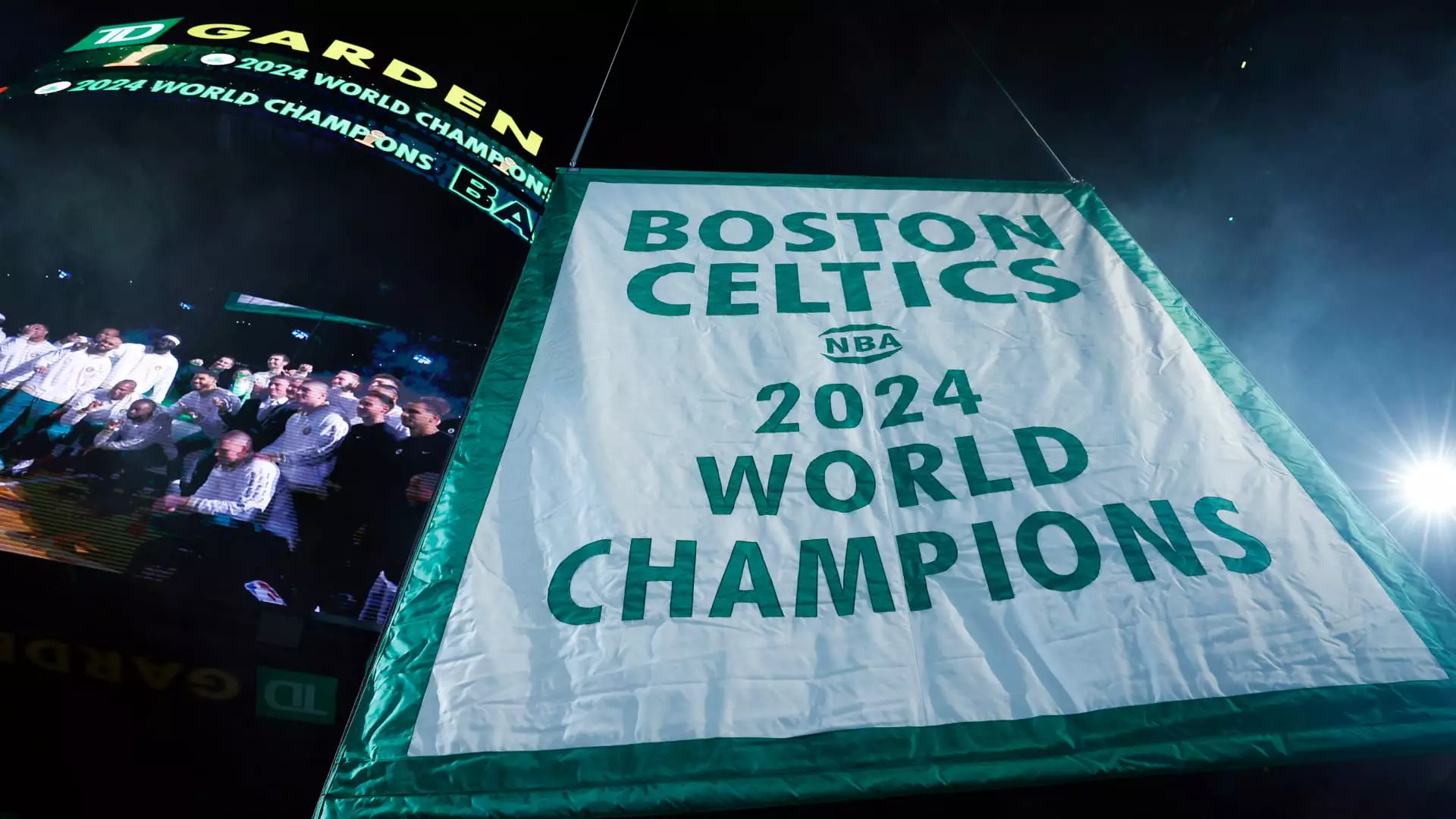The recent purchase of the Boston Celtics by a consortium led by Bill Chisholm marks a seismic shift in sports franchise ownership, pulling back the curtain on the staggering valuation now attached to professional sports teams. At a jaw-dropping $6.1 billion, the Celtics’ sale has established a new benchmark in U.S. sports history, outpacing even the recent acquisition of the NFL’s Washington Commanders. But what drives these skyrocketing valuations? For starters, the infusion of private equity money into sports franchises is reshaping the landscape. Increasingly, teams are viewed not merely as athletic organizations, but as investment vehicles that promise—if managed astutely—significant financial returns. Yet, is this trend beneficial for the essence of the game and the community its teams serve?
Media rights have become one of the primary fuels behind these colossal valuations. The NBA’s recent 11-year, $76 billion deal with major platforms like Disney and Amazon showcases the lucrative potential of broadcasting rights. Such agreements illustrate a troubling trend: as sports teams become financial playthings for the ultra-wealthy, their cultural significance risks being overshadowed by the relentless pursuit of profit. What happens when community identity and local pride become mere statistics on a balance sheet? As a Bostonian and liberal observer, I find the implications troubling. The Celtics aren’t just a team; they are a legacy woven into the fabric of Boston itself.
The Local Connection: Ownership Matters
It’s crucial to note that while Chisholm heads a corporate-driven ownership group, he also has tangible ties to Boston. His local roots and professed loyalty to the franchise signal a positive sign of hope; however, the very structure of the ownership—which includes a plethora of wealth-fueled individuals—poses questions about accountability and community focus. When wealthy investors take ownership, do they genuinely feel responsible for the community, or are they merely fulfilling a business obligation? Chisholm claims to understand the Celtics’ role within Boston’s identity, asserting a moral responsibility to its citizens, yet one can’t help but wonder if platitudes about “being a fan” are enough to bridge the gap between the boardroom and everyday life.
The Celtics symbolize much more than just basketball; they are emblematic of the city’s success, struggle, and spirit. The challenge for Chisholm and his fellow investors will be to maintain the spirit of community engagement while balancing the demands of profitability. Perhaps history will prove him right, but skepticism remains justified, especially in a time when fan loyalty can be treated like a commodity.
Rising Stakes: The Challenge of Community Orientation
Chisholm’s ascension as the new leader of the Celtics coincides with a generational shift in sports ownership—where hedge funds and private equity firms seek autonomy in controlling the game. While franchises like the Celtics deserve unparalleled commitment and passion from their owners, the reality is that these transactions often enforce a layer of distance between players, management, and the fans. This inherently capitalist dynamic tends to commodify sports, prioritizing lucrative television contracts over wholesome community involvement.
The question of whether future owners will invest in player development, community outreach, or simply focus on the next big profitability move looms large. Celebrating the Celtics’ 18 championships now feels distant from the picture when teams are potentially being run by individuals more interested in spreadsheets than celebrations on the parquet floor. To be forthright, private equity ownership raises concerns about what it means for the remaining family-owned teams that are anchored in legacy, tradition, and community engagement.
A Cultural Footprint: Beyond the Cash Flow
It is vital to highlight that the Celtics are not simply a sports team; they are a cultural institution. The fears over the commercialization of sports extend beyond the game itself. Fans deserve owners who appreciate their loyal support, who are invested not just financially but emotionally. They deserve stakeholders who understand that the thrill of a game goes hand-in-hand with the soul of a city—something that a bottom-line-focused approach could easily lose sight of.
While optimism towards Chisholm’s leadership exists, let’s not forget that money is only one part of what makes a team truly successful. It’s high time for discussions to emerge about ethical ownership in professional sports—discussions that center around the balance of investment and community ties. The Celtics’ new chapter is here, and I genuinely hope it marries ambition with authenticity. As Boston Celtics fans, we must be vigilant, advocating for ownership that embodies respect for the game while nurturing our rich sports culture.

Leave a Reply